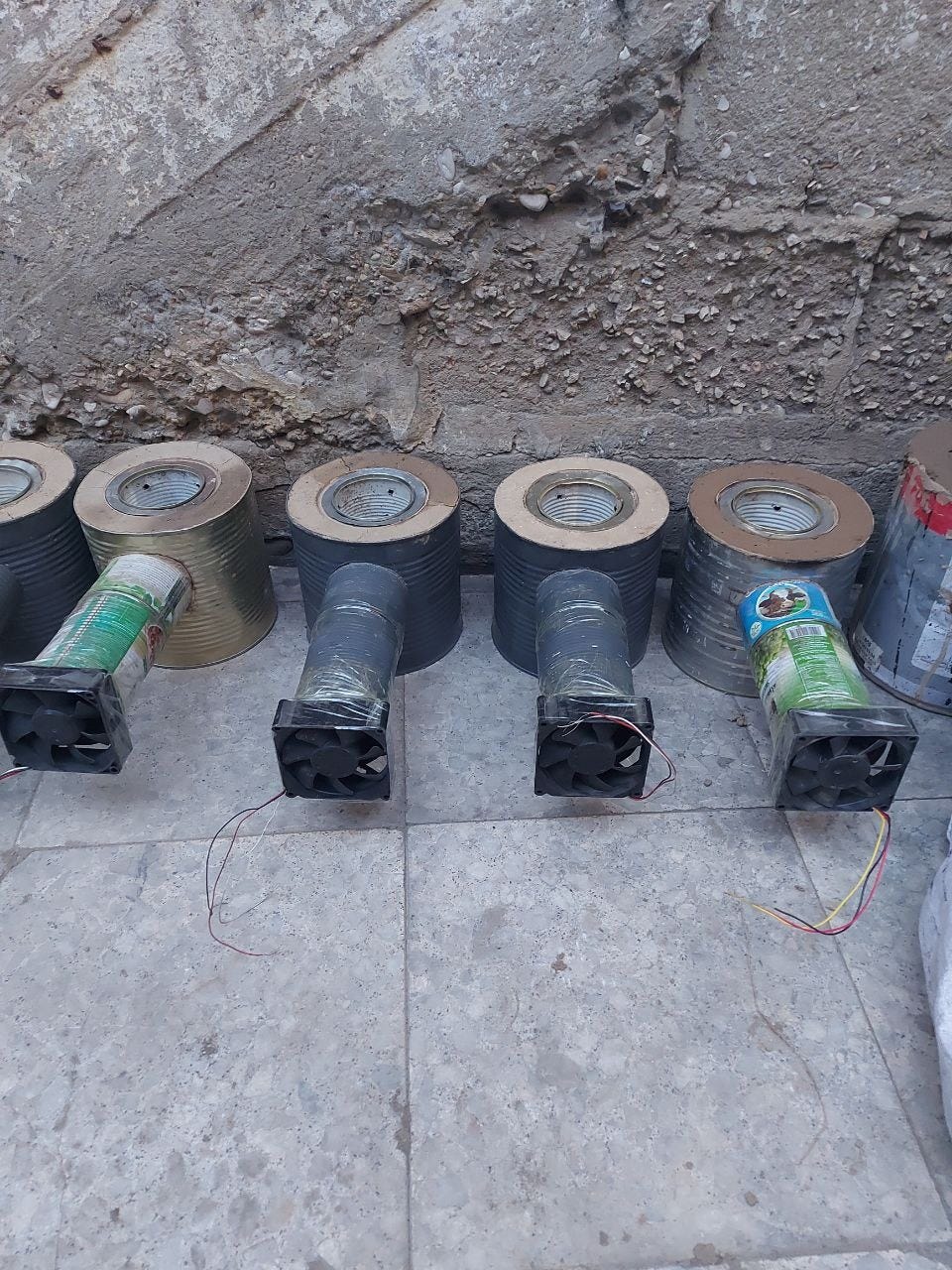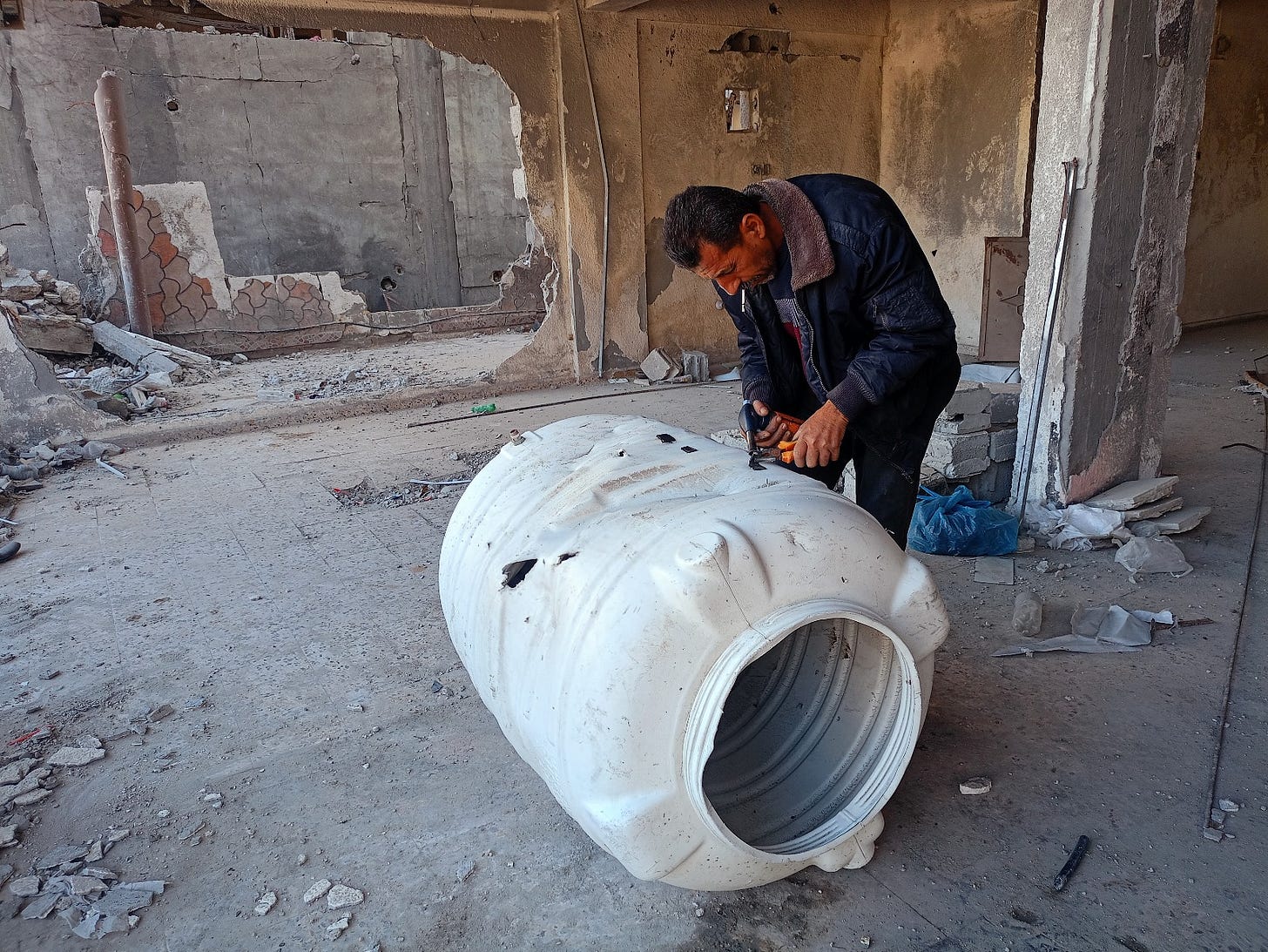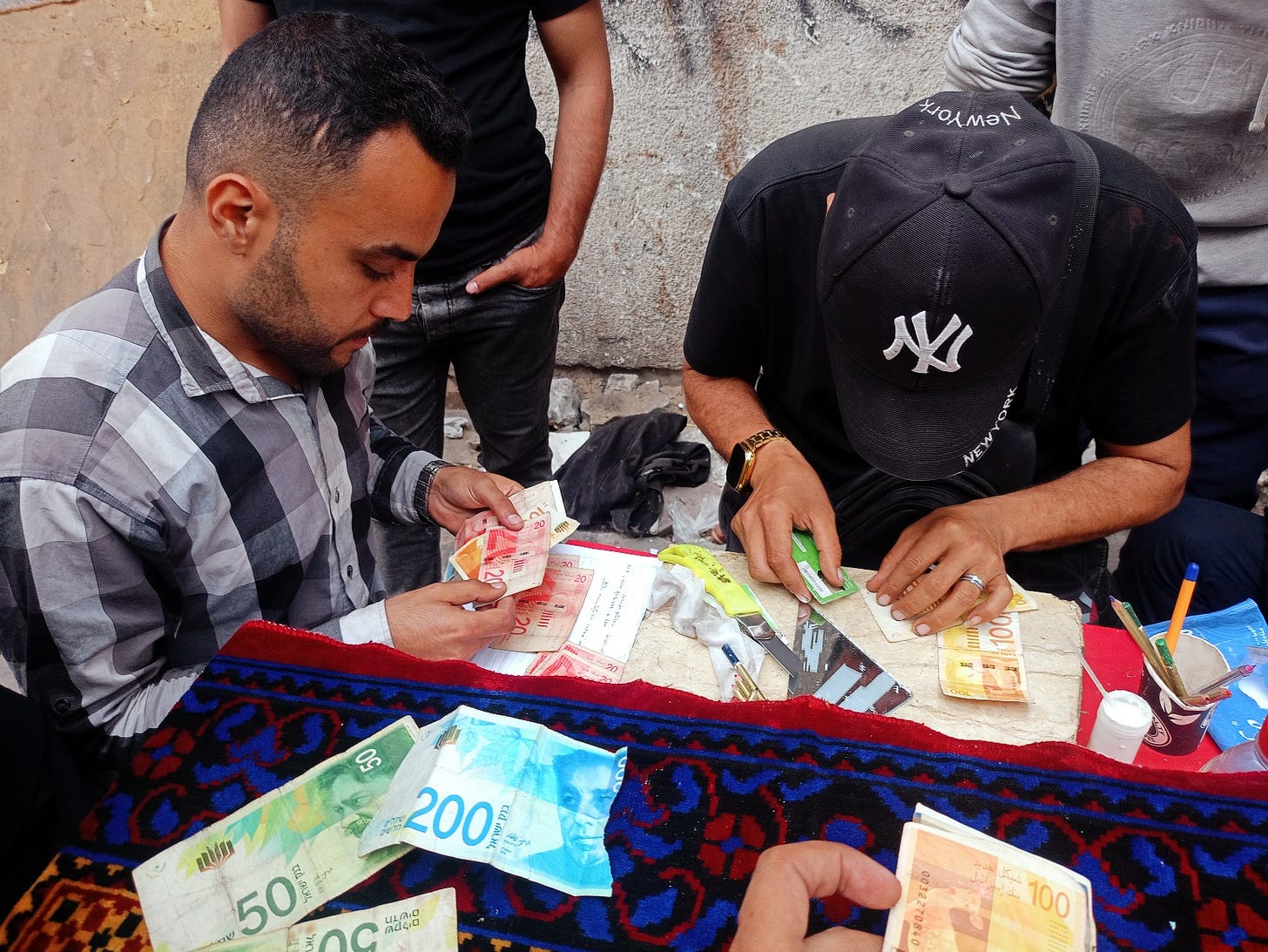Palestinians in Gaza Forced to Create Survival Techniques Amid Israel’s Intensifying Onslaught
From building plastic-burning stoves to restoring banknotes, Palestinians in Gaza are struggling under impossible conditions.
GAZA CITY—Life in Gaza has become almost impossible to sustain. Since Israel resumed its scorched earth bombing campaign on March 18, airstrikes have been relentless across the entire enclave, from Rafah in the south to Beit Hanoun in the north, and everything in between. Over 2,200 have been killed and 5,700 wounded over the past six weeks alone, according to the health ministry. Israel has also sealed off Gaza completely, imposing a total ban on all food, fuel, medicine and other humanitarian goods from entering Gaza since March 2. Everyone is hungry and thirsty and increasingly desperate.
Palestinians in Gaza are finding ways to survive—using new techniques to cope with their circumstances in a world that has abandoned them. Some of these temporary solutions have become essential tools that have spread across Gaza. Here are three of these stories:
Plastic-Burning Stoves

In his home in Al-Shati refugee camp west of Gaza City, Ahmad Al-Talmees stood over one of his self-built stoves—watching the flames rise from the burning plastic scraps that he uses as a substitute for fuel.
A 36-year-old plumber by trade, Al-Talmees invented the stove in April when cooking gas all but ran out as a result of the Israeli siege and even firewood became scarce and unaffordable, reaching around $2 per kilogram, up from just 30 cents before the war. His simple design allows for the sustained burning of plastic and rubber — such as the remnants of plastic hoses that have been shredded in Israeli airstrikes.
"I used a cylindrical can that was used to store oil, opened it on one side, added another cylinder to the opening and fixed a small battery-powered fan inside,” he told Drop Site News. "I place the plastic pieces inside the can, light them, then turn on the fan. Within seconds, a powerful flame erupts, enough to cook a family meal."
What began as a simple solution in Al-Talmess’s home quickly spread among his neighbors and to other areas of Gaza. "People see the strong flame and are impressed. They ask me to make similar stoves for them," he said.
Even though burning plastic releases toxic fumes that pose serious health risks, those concerns have become secondary as families struggle to cook the most basic meals to survive.
Different craftsmen copied the idea and the makeshift stove is now sold in the streets and markets across Gaza for around $35, Al-Talmees said, adding that he has sold around 70 of the devices himself.
"I wonder if I could get a patent for this invention?” Al-Talmees said laughing. “It was born of war and siege, and it’s a clear sign of our desire to live."
Barrel Welding

In a narrow alley in the Al-Nasr neighborhood west of Gaza City, Mohammed Shaheen hunched over a large water barrel repairing several punctures using a plastic patch and a simple torch.
Shaheen, 48, an electrician by trade, never imagined he would become a barrel repairman, ensuring water storage for households in Gaza.
“The idea started when the war began. I noticed most water barrels in our area were damaged by airstrikes and were full of holes and unusable. Meanwhile Israel banned new barrels from entering Gaza,” Shaheen said.
With a shortage of ways to store water, Shaheen began welding damaged barrels using reinforced plastic, melting and reshaping it to patch the holes and cracks.
"Over time, people started bringing me their broken barrels, and I’d fix them. Today, others have learned the skill, and it’s become a new profession in Gaza known as 'barrel welding,'" Shaheen said.
The value of a single barrel has skyrocketed under the Israeli blockade. A 1,000-liter barrel that used to cost $30 now reaches more than $300—far beyond what most families can afford.
"Whoever owns a usable barrel is considered lucky, because they can store water in their tent or home. Those who don’t must carry jugs of water daily from filling stations—an exhausting task, especially under current conditions," he said, standing over a barrel he just finished repairing. "These barrels were deemed worthless, but we bring them back to life. In Gaza, we force things to endure with us, even in the hardest times."
Currency Restoration
In a small corner of the Abu Iskandar Market in the Sheikh Radwan neighborhood of northern Gaza City, Khaled Hamed sits at a table with a torn banknote in his hands. He carefully examines its edges, trims the worn parts with a sharp blade, then reattaches the remaining segments with a transparent adhesive before brushing on a light wax coating.
Before the war, Hamed, 39, worked at a company specializing in printing vinyl ads. He now spends his time restoring worn out banknotes.
Over the course of the war, Israel bombed and destroyed nearly all the banks and ATMs in Gaza and has blocked imports of cash despite dwindling supplies. With no fresh notes being circulated in Gaza’s economy, shekels are ripping apart from wear and tear. Damaged notes are valued at a lower rate — sometimes by up to 40 percent, according to Hamed, so restoring them has become a crucial skill. Depending on the note's value, Hamed charges between $1 to $2 to restore a damaged banknote.
"Since October 7, Israel has blocked the entry of cash into Gaza. The banknotes we have are worn out from continuous use and humidity. Many are no longer suitable for trade," Hamed said. "I start by trimming the worn parts, then used a fine adhesive to hold them together. I finish the repair with a touch of wax crayons to restore the note’s original look,” he added. “Over time, people started bringing me their bills, and now others have learned the craft and it is a service sold in the streets.”
While cutting or modifying banknotes is technically a violation of currency regulations, it has become a widespread and practical solution to help deal with one aspect of the crippling financial crisis in Gaza.
"We’re not trying to counterfeit—just to make the money usable again when we can’t bring in new currency,” Hamed said.





The ultimate in sustainability! People should be doing this everywhere and probably will be the way things are headed!